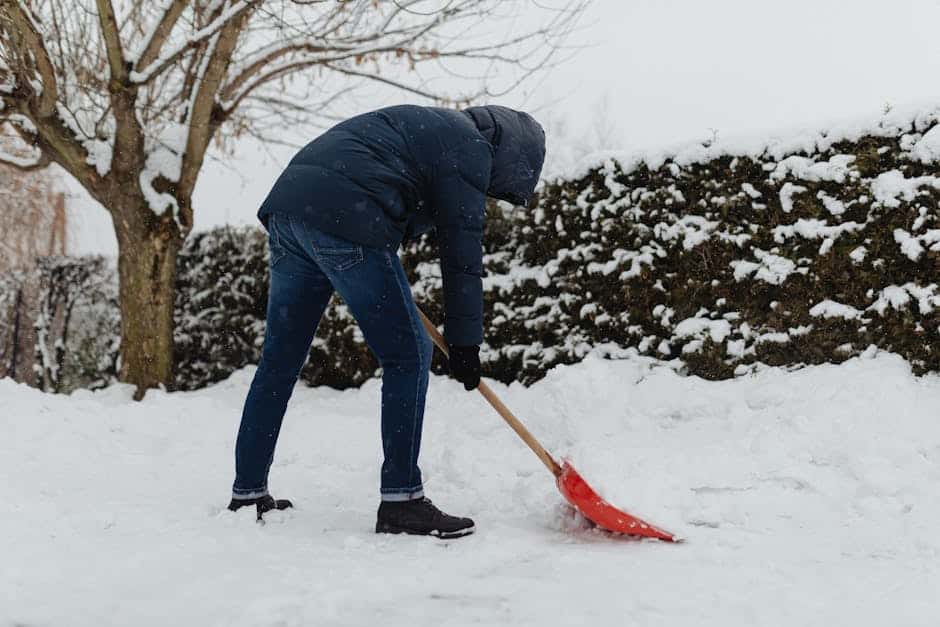There’s no denying just how unpredictable winter can be for countless households, and this has a lot to do with rapidly changing weather patterns and pressure systems that can unexpectedly knock out municipal power supplies days—and sometimes weeks—at a time.
No matter where you live, you need to be fully prepared for staying warm this winter, because this peace of mind ultimately protects your family, your property and your mental wellbeing.
We recently got in touch with the house generator experts in Columbus, Ohio at Garber Electric to better understand how standby generators support homes and businesses of all sizes, so check out the below sections to learn more about our comprehensive guide toward keeping your home safe, powered up, and comfortable all winter long!
Start Out By Investing In A Whole House Generator System
Whenever your property’s power suddenly goes out during a serious cold snap, a whole house generator automatically kicks into gear and becomes your home’s unsung hero.
These systems are very different than portable generators, and this is because they’ll restore your home’s power within a matter of seconds and keep your essentials like lighting, heating and refrigeration seamlessly running.
Homeowners who’ve experienced prolonged outages in the past know all too well how standby generators are one of the smartest investments that you can make. Today’s systems also run on natural gas, which essentially eliminates the need for refueling and gives consistency when blackouts last more than a few days!
Winterizing Your House’s Generator Before The First Freeze
Just like any other major appliance, a whole house generator requires seasonal maintenance during the fall months.
These types of inspections usually include the following:
- Testing starter and battery systems
- Checking filters and oil
- Clearing and securing fuel supply lines
- Running test cycles
It’s also very important to clear any leaves, snow or debris from around your generator system to ensure that you’re preventing overheating issues and maintaining proper airflow. And for the utmost reliability this winter, be sure to schedule maintenance inspections at least on a yearly basis with your generator experts.
Protecting Your Home’s Water & Heating Systems
It’s also important to remember that generators aren’t solely meant to keep your home’s lights on, because they also do a great job at preventing all sorts of costly damages.
When temperatures plummet, some of the biggest risks that your home can face include failing heating systems and frozen pipes. These repairs can cost a fortune, but generators are specifically wired to power up your boiler, furnace or heat pump along with your property’s essential components like sump and well pumps.
This extra precaution goes a long way to keep your home’s plumbing and electrical systems fully operational while the grid is still dark!
Staying Ahead Via Smart Home Technology
Today’s smart home technology can assist whole house generators by making your overall preparedness more seamless than ever before.
By pairing your generator up with a home monitoring app or smart thermostat, you’ll be able to easily monitor indoor temperatures, manage energy usage, and receive real-time alerts when your generator activates itself.
A lot of today’s homeowners are also installing dynamic load management systems that distribute power during outages in a way that prioritizes refrigeration, heating and lighting.
Not only do these cutting-edge innovations improve a property’s efficiency, but they also help you stay in control and informed—no matter where you’re currently located!
Safety Always Comes First
Even with the latest modern equipment, safety is a non-negotiable factor for all generator owners.
This is why your generator should always be located outside and at least five feet away from windows and doors, because this will help prevent potential carbon monoxide buildup. You should also be sure to install CO detectors in various parts of your home and test them regularly throughout the winter.
You also must ensure that your generator’s exhaust vents are properly cleared, and that you’re never using portable generators in garages or indoors!
Turning Common Winter Challenges Into Peace Of Mind Through Whole House Generator Installations
Being prepared doesn’t mean that you’re paranoid and preparing for the worst, because it’s more about simply being ready for any and all possibilities.
When you own a house generator that’s properly maintained with smart controls, you’ll be primed and ready to face even the harshest winter days and power outages with 100% confidence.
So, be sure to guarantee your home’s resilience this winter by investing in your safety, comfort and peace of mind!








